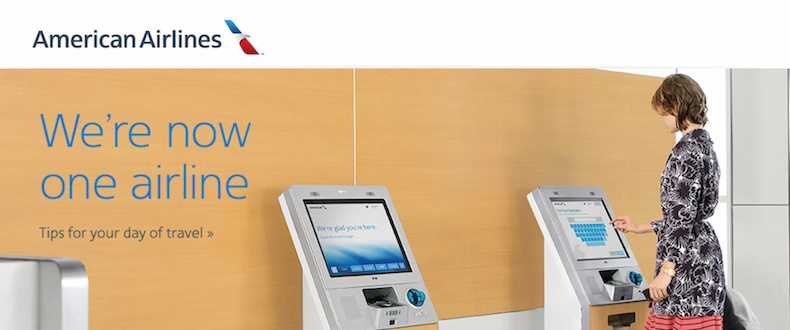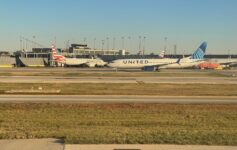
The final transition from US Airways to American Airlines was a total non-event and for that I must offer my congratulations to American Airlines.
Thinking back to that fateful March day of Continental – United system integration in 2011, I cannot help but to notice AA learned from the mistakes of United. AA’s decision to retire US Airways on a Saturday, typically a slower travel day, was a smart move. United did this too, though. What American did differently was to provide far more comprehensive training to their agents and more fundamentally, wisely avoid using a regressive passenger service system.
When United fouled up its system integration it set the tone for the way the merged carrier would be – a sloppy, mismanaged, tone deaf carrier that suffered from operational difficulties to the point in which the United brand suffered irreparable damage…damage, I might add, that continues to harm, as we wait to see whether CEO Oscar Munoz’s heart attack was serious enough to force him to step down from his new role.
Ironically, United endorsed me over to US Airways in the infancy of its system integration, as agents were so poorly trained that they could not figure out how to efficiently perform such menial tasks as checking in or rebooking passengers. Thousands were stranded.
American must be congratulated for pulling this off well, and I hope it is a sign of good things to come.
What Will American Airlines Do Now?
Ok, so AA pulled off one of the final steps of its merger with US Airways well. What’s next?
Bucking my expectations, we have seen no massive devaluation to the AAdvantage program yet or even a hint of one. Certainly American does not wish to rock the boat too much for its customers as the merger dust continues to settle, but let’s make one thing clear – AA is long overdue for a devaluation.
I hate to sound like a doomsday prophet on this, but you cannot help but to see the lack of equilibrium between legacy carriers United, American, and Delta and wonder how long will AA maintain its award chart sweet spots.
Take Asia for example. United charges 70-80K one-way for business, Delta charge 70K one-way, and AA charges 50-55K. First Class? United charges 120K to fly on a partner in first class one-way. AA charges 62.5-67.5K. First Class to Europe? 110K on United one-way, 62.5K on AA. Australia? 72.5K for first class on Qantas using AA miles – United and Delta charge more for business class!
I don’t expect a “massive” devaluation that will permanently retard the value of your AA points, but I do expect prices to most regions will rise modestly and Asia will rise significantly, perhaps with first class doubling in price.
After the debacle of its last devaluation (raising the price of AAnytime awards and eliminating Explorer Awards with no notice) we were promised more notice next time. I would not count on it. Delta, after realizing that providing notice was not illegal, claimed to provide notice of its big devaluation earlier this year, but there was no notice at all. Even though pricing changes took effect for travel beyond June 2016, they took effect immediately: you had no grace period to book travel for summer 2016 at the old rate.
Should you liquidate your AA accounts today? Absolutely not. But just keep in mind your redemption travel plans for the next year, plan ahead when possible, and especially if you are going to Asia, do not neglect to book early.
We’ll see other changes in the post-merger AA, some of which we will like, others which we will not, but my concern is miles and points and I want you to be prepared for the devaluation, for it is not a matter of it, but of when.




Flying out of PHL on Saturday, I was mildly shocked at just how much of a non-event the integration was. I say mildly, because while the process so far gave no suggestion a full-on meltdown was coming, you’d have figured there would at least have been a few hiccups. But aside from a couple of bloopers, like the departures screen in the Admirals Club reading “US Airways Departures”, and the captain thanking us for flying US Airways as we landed at DFW, it seemed like just an ordinary Saturday in both mega-hubs.
What I fear more than a devaluation honestly continues to be a gradual cheapening of the product. You’re already seeing some of that with the meal service, though they’ve since partially reversed course. I’m still not totally convinced the US management team now running the show won’t try to go farther with the penny pinching at some point, but we’ll see.